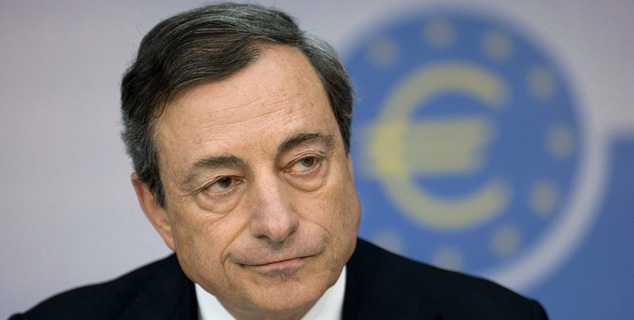
The euro hit a nine-year low against the dollar today. But ECB money-printing and the upcoming Greek elections could soon see the slide spiral out of control.
What happened?
The euro today hit a nine-year low against the dollar as speculation grew that the European Central Bank (ECB) was set to engage in large-scale quantitative easing (QE). European Central Bank president Mario Draghi told German newspaper Handelsblatt
he was “making preparations to alter the size, pace and composition of our [QE] measures in early 2015”.
Greece’s continuing political uncertainty also contributed to the euro’s lowest position since 2006. Radical left-wing party Syriza – which has vowed to reject EU austerity measures – currently heads opinion polls, and electoral victory on 25 January could cause Angela Merkel to accept Greece’s exit from the eurozone, according to a disputed report in Der Spiegel
.
What did commentators say?
The euro-slide was met with concern by financial commentators, who fear the currency may soon fall further.
BNP Paribas strategist Michael Sneyd forecast a “downward pressure” on the euro, blaming “increasing expectation for the ECB to deliver quantitative easing on Jan 22, combined with rising political concerns ahead of Greece’s general election”, Reuters reported.
JP Morgan sounded a similar cautionary note on Friday, calling Syriza’s lead in opinion polls “a reminder that various parts of Europe are only a vote away from market unfriendly policymakers, so are another reason to stay short euros”.
Mitul Kotecha, currency strategist at Barclays, suggested that Eurozone worries would contribute to the dollar’s continued strength: “We are still in a strong-dollar environment going into this year…the euro downtrend is leading the way”.
What next?
The extent of the euro’s fall depends on events in three weeks.
If the ECB announces a major QE programme at its meeting on 22 January, the euro-slide will continue. If Syriza wins the Greek election later that week (25 January), fears of a ‘Grexit’ will hit fever pitch.